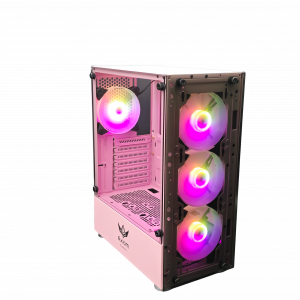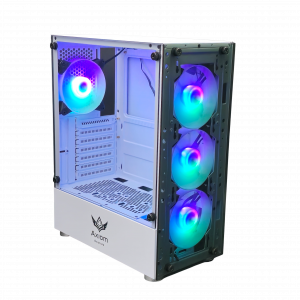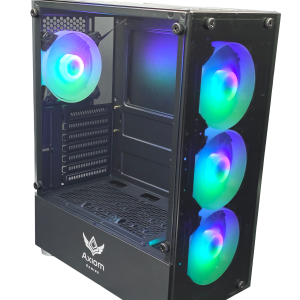When it comes to gaming, SSDs and HDDs impact more than just storage capacity—they affect load times, game performance, and overall experience. While both drive types are common in gaming PCs, each has its strengths and weaknesses. Here’s how SSDs and HDDs stack up in gaming scenarios and why SSDs are often the preferred choice for gaming performance.
Why SSDs Are Better for Gaming
An SSD significantly improves the gaming experience by offering high-speed data access, reducing load times, and enhancing overall system responsiveness. Here’s how an SSD impacts gaming:
1. Faster Game Load Times
One of the most noticeable differences when gaming on an SSD is the vastly reduced load times. Games load faster because SSDs can access game files more quickly than HDDs. This advantage is especially beneficial in large open-world games or titles with high-resolution textures, where loading screens can otherwise be lengthy.
For example, open-world games like Cyberpunk 2077, The Witcher 3, and Red Dead Redemption 2 benefit from SSD storage because the game engine constantly loads and unloads assets as you move through the game world. With an SSD, load screens are shorter, and in-game transitions (such as fast travel) are noticeably faster, leading to a smoother, more immersive experience.
2. Reduced Texture Pop-In and Lag in Open-World Games
SSDs are particularly useful in games that rely on streaming textures and assets, such as large, open-world or high-action games. In games installed on an HDD, you may notice “texture pop-in” where textures load slowly or appear blurry momentarily. This is because the HDD’s slower read speed struggles to keep up with the game’s demand for assets in real time.
With an SSD, game data is accessed almost instantly, reducing or eliminating texture pop-ins and resulting in smoother transitions. This benefit is particularly important in fast-paced games or games with dynamic environments, where lag can break immersion and interfere with gameplay.
3. Improved Multitasking and Loading
Gamers who multitask with applications running in the background—such as Discord, streaming software, or a web browser—will notice smoother performance with an SSD. Since SSDs have faster read and write speeds, they handle multiple processes better than HDDs, making it easier to alt-tab between applications without lag or delays.
4. Better Patch and Update Speeds
Games are frequently updated with patches, expansions, or DLCs that can be large in size. Downloading updates directly to an SSD speeds up installation and loading times for these updates. Additionally, SSDs allow you to quickly verify game files or run integrity checks if needed, saving you time.
Why HDDs are Less Effective for Gaming
While HDDs still work for gaming, they come with limitations that affect gameplay experience:
1. Longer Load Times and Transitions
On an HDD, games take longer to load due to the mechanical nature of the drive. Booting up a game can take noticeably longer, and frequent load screens or transitions within a game become more drawn-out. For some gamers, the extra wait can feel frustrating, especially in story-driven games with lots of scene transitions.
2. Potential Lag and Stutter in Asset-Heavy Games
In graphically intensive games, HDDs can struggle to keep up with the data demands, leading to stuttering or lag as the drive reads and loads large assets. This effect can be particularly frustrating in action games or competitive shooters where every frame and split-second counts.
3. Frequent Patch Installations Are Slower
With games getting larger and updates becoming more frequent, HDDs can struggle to quickly install and load patches. Since an HDD has slower write speeds, updating games can take significantly longer than with an SSD.
Hybrid Setup for Gaming: The SSD + HDD Combo
Many gamers choose a combination setup, using an SSD for their OS and frequently played games and an HDD for storing larger games, media files, or backups. This hybrid setup offers the best of both worlds:
- SSD for Games with Frequent Load Times: Games like Fortnite, Call of Duty, and Cyberpunk 2077 benefit from SSD storage due to frequent loading and heavy asset streaming.
- HDD for Storage of Large Games or Files: Use the HDD for games with lower data demands or for storing game backups, media, and other files that don’t require quick access.
How Much SSD Space Do You Need for Gaming?
For most gamers, a 500GB SSD is enough to install the OS and several games. However, as games continue to grow in size, a 1TB SSD may be a better option if you frequently play multiple AAA games. If you’re combining an SSD with an HDD, a smaller SSD (250GB to 500GB) paired with a large-capacity HDD (1TB or more) can offer ample storage at a more affordable price.
Conclusion
While HDDs are still useful for large, cost-effective storage, SSDs are far superior for gaming performance. The faster load times, reduced lag, and seamless multitasking of an SSD improve the gaming experience, especially for open-world or asset-heavy games. A combined setup of an SSD for speed and an HDD for storage is an excellent way to maximize performance without overspending.
If you’re looking to enhance your gaming rig, investing in an SSD for your operating system and favorite games is one of the best upgrades you can make. The difference in speed and responsiveness will be immediately noticeable, providing a smoother, more immersive gaming experience.



